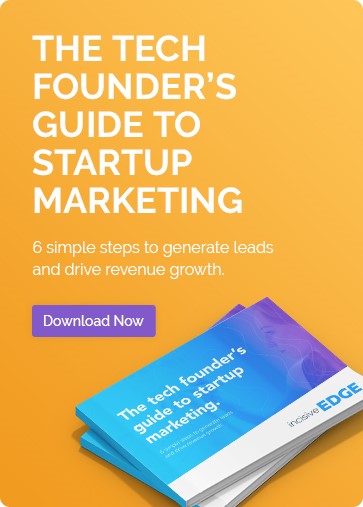Developing marketing strategies has been a top priority for business owners for decades. Commenting on how marketing has changed over the half-century since the first edition of his seminal textbook Marketing Management, renowned author, consultant and professor emeritus Philip Kotler and his 16th edition co-author Alexander Chernev point out that the foundation of marketing strategy has not changed with time. The key purpose of every company is still to create value for its customers and marketing continues to be about designing and delivering that value.
The landscape of tools available to understand and communicate value has undergone irrevocable change. However, in the absence of a focused purpose and the implementation of successful marketing strategies, a thoughtfully designed marketing mix, and purposeful marketing initiatives, even the most advanced marketing tools will do little more than divert attention from a company's core mission.
Check out the following articles to learn more about marketing strategies:
- Go to Market Strategy vs Marketing Strategy: The Difference
- How to Create a Winning Market Strategy in 2023
- The 6-Step Go to Market Strategy Template for Growth
- 5 Go to Market Strategy Examples to Learn From
Defining a Digital Marketing Strategy
If Kotler & Co. are to be believed, the decades-old principle of value creation continues to be at the core of marketing even in this digital age. Only the tools available to design, communicate and deliver that value have changed. A successful marketing strategy, therefore, has to be developed outward from these core principles before it can flow organically into the best blend of techniques, methodologies and tools that help maximise value creation. Decisions regarding new vs old media, traditional vs digital media, paid vs owned media etc. must stem from the long-term business, brand and product goals and objectives envisioned in the marketing strategy and not the other way around.
In a previous article on inbound versus outbound marketing, we argued that these are complementary rather than competing options and that an integrated inbound-outbound marketing strategy represents the best model for most businesses to maximise marketing performance. This integrated strategy is what we refer to as a digital marketing strategy. It is not a strategy designed around the tools available in the digital age, but rather a strategy that focuses on maximising value creation for a digital customer.
Let’s now get down to the key steps involved in developing an effective marketing strategy.
Developing a Digital Marketing Strategy

(Source: Equinet)
Define Digital Marketing Goals & KPIs
Every business has a unique set of strategic business and marketing goals that it hopes to achieve across short, mid, and long-term timelines. One of the fundamental requisites of an effective overall marketing strategy is to ensure that it is perfectly aligned with these business goals. Starting with a clear idea of what a business wants to accomplish makes it much easier to build specific and measurable marketing goals and business goals.
One approach to creating clearly-defined and measurable marketing goals is the SMART system that maps every goal across five key variables (Specific, Measurable, Attainable, Relevant, Time-bound) to ensure that they are practical, quantifiable and achievable.

(Source: LaunchSpace)
With SMART marketing goals in place, next define your key performance indicators or KPIs – the metrics that will indicate if strategy execution is producing the desired results and benchmarks, and to measure if growth/improvements are hitting expected targets.
Understand Your Customers, Competitors and Marketplace
If customer-centricity is the primary purpose of every business, then building a deep and rich understanding of one’s target audience will be key to the success of any digital marketing strategy and marketing efforts in general. And in this data-driven age, it is now possible to build detailed profiles that go much beyond traditional demographic and generalised psychographic models.
The first step in this phase, therefore, should be to create detailed buyer personas across multiple audience segments based on real data. The next area of focus should be on a comprehensive digital marketing competitor analysis to deconstruct competing strategies and gain valuable insights that can be used to fine-tune and build out one’s own marketing plan and strategy.
Develop a Marketing Plan
A marketing plan is a critical interface between digital marketing strategy and strategy execution. A marketing audit is one of the first steps to take before translating a strategy into a marketing plan that will deliver on desired goals and objectives.
A marketing audit delves deep into an organization's marketing ecosystem, encompassing elements such as online marketing strategies, social media platforms, and the identification of the most effective marketing strategies. It extends its scrutiny to include an evaluation of strategies and objectives, the product portfolio, the strength of the brand, and the suite of marketing assets at hand, all within the context of the available tools and resources.
The purpose of this audit is twofold: Firstly, it provides businesses with the means to comprehensively assess the performance of each asset, channel, and tactic in their marketing arsenal, allowing for necessary adjustments and refinements. Secondly, it ensures a seamless alignment between the micro and macro marketing environments. Armed with a panoramic view of the marketing ecosystem, businesses can strategically refocus their marketing assets and strategies, selecting a blend of channels and tactics that best resonate with their target audience and align with their overarching business goals.
Proper market research will help your organisation put together a well informed marketing strategy, and by following the process described here you will have a good idea of the right marketing message to reach your buyer personas with.
Implement the Marketing Plan
According to one study, 60% of organisations struggle to bridge the gap between strategic planning and execution.
However, there are a few factors that, when managed properly, can improve strategy execution and help create effective marketing strategies tailored to the target market while also providing a competitive advantage. Ensure that leadership and all key stakeholders and decision-makers are united in their commitment to the digital marketing strategy. Match skills and talents with the appropriate tasks and provide the required systems and structures to fulfil individual and collective responsibilities. Empower experimentation and innovation without losing sight of KPIs and benchmarks. Finally, emphasise the value of implementing best practices wherever possible.
Continuously Evaluate and Optimise
Digital marketing is remarkably suited for continuous evaluation and optimisation. Therefore, the focus has to be on finding new ways of using incoming data to holistically fine-tune and refocus strategy execution across marketing channels.
Marketing Strategy in the Digital Age
To close with a quote from Kotler, ‘Marketing is not the art of finding clever ways to dispose of what you make. Marketing is the art of creating genuine customer value.’
Admittedly, today there are several technologically cleverer ways of reaching out and engaging with consumers in order to sell more products more quickly. However, to call these approaches digital marketing is to mistake tactical execution for marketing strategy. Marketing strategy outlines, including the best marketing strategies, must remain rooted in a keen understanding of customer value. Whether that value is delivered via email or direct mail, TV or YouTube, print or podcast, or some other combination thereof, will be determined by a marketer's knowledge of their customer's preferences and behaviours, all while considering the role of content marketing.
Need help developing a digital marketing strategy for your company? Get in touch with the experts at Incisive Edge today.







